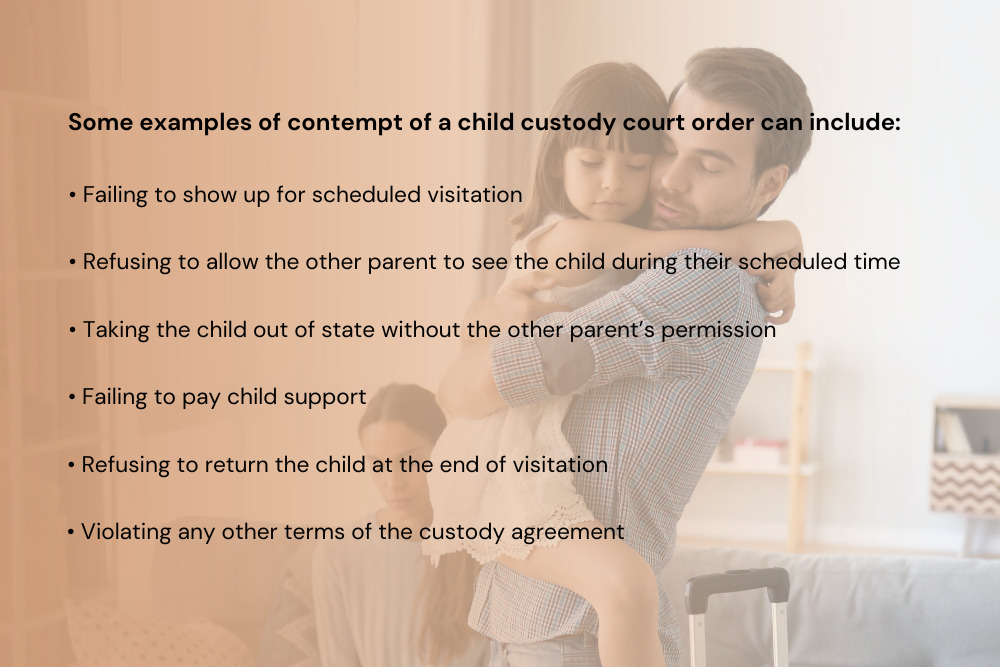How Severe Does a Custody Agreement Violation Have to Be Before a Court Will Help Me?
Introduction
A custody agreement, also known as a parenting plan, is a legally binding court order that outlines custody and visitation arrangements for children when parents separate or divorce. It specifies when each parent will have physical custody and decision-making authority. But what happens when one parent violates the terms of the agreement? How serious does the violation have to be before the court will step in? This article examines what courts look for when one parent alleges the other has breached a custody order.
Factors Courts Consider in Custody Agreement Violations
Courts look at several factors when evaluating the severity of a custody agreement violation:
Materiality of the Violation
First, the court will look at how significant or material the violation is in relation to the overall custody order. For example, missing one weekend visitation is likely less severe than denying all visitation rights to the other parent for an extended period. Violating major provisions like joint legal custody have greater implications than failing to swap a holiday or vacation week.
see also Clay County Courthouse
Frequency and Pattern of Violations
Courts also consider whether violations are occurring repeatedly and establishing a pattern. An occasional missed visit due to illness or unforeseen event is typically less concerning than one parent routinely interfering with the other’s parenting time. Frequent or escalating violations indicate an underlying problem.
Intent and Bad Faith
The court will attempt to discern whether the violation was willful and in bad faith, or an unintentional mistake. Purposefully defying court orders is viewed as more severe than a logistical issue arising in good faith.
Best Interests of the Child
Most importantly, the court will evaluate how the violations impact the child’s best interests. Situations placing the child’s safety or wellbeing at risk are considered most severe.
Remedies for Custody Agreement Violations
When a violation rises to a concerning level, the court has several options to remedy the situation:
Contempt of Court
The court can issue civil contempt charges against the noncompliant parent, including fines or jail time until they comply. Criminal contempt charges may be warranted for extreme cases.
Modification of Custody
If violations show an existing custody arrangement is unworkable, the court can modify the terms, such as granting primary physical custody to the other parent.
Make-Up Parenting Time
The court may order make-up visits or extend parenting time for the parent denied access.
Counseling or Parenting Classes
A court might mandate counseling, parenting classes, or other interventions to improve coparenting.
Attorney’s Fees
The parent who violated the agreement may be ordered to pay the other side’s legal fees.
Tips for Documenting and Seeking Relief
If you are dealing with custody agreement violations, here are some tips:
Keep Detailed Records
Thoroughly document each incident, noting dates, times, places, witnesses, and how the child was impacted. Records carry more weight than allegations.
Try to Resolve Informally First
Unless safety is a concern, attempt reasonable, good faith efforts to resolve issues out of court first. Courts prefer collaborative solutions where possible.
Consult an Attorney
An attorney experienced in custody matters can advise if seeking formal relief is prudent, and represent you in court if needed.
Focus on the Child’s Best Interests
Keep the remedies focused on protecting the child, not punishing the parent. Courts act to ensure stability, safety and wellbeing.
see also Hampton Circuit Court
Conclusion
Custody agreements are not mere guidelines – they are court orders that must be followed. However, courts realize occasional mistakes happen. They weigh several factors to determine if violations warrant intervention, always with the child’s best interests in mind. Documenting issues and consulting an attorney can help determine the best course of action. With a thoughtful approach focused on the child, parents can seek reasonable remedies to uphold their custody rights.
FAQs
What if both parents violate the custody agreement?
If both parents are found to have violated the custody order, the court can either hold both in contempt or amend the agreement if it is unworkable for the family’s circumstances. The court aims to put a functional plan in place.
Can I deny visitation if I haven’t received child support?
No, you cannot deny court-ordered parenting time, even if owed child support. The court remedies for lack of payment are separate from custody rights.
What if the other parent repeatedly shows up late?
Showing a consistent pattern of tardiness for transfers can be grounds for seeking court intervention, especially if the behavior disrupts the child’s schedule.
What if the violations place my child in danger?
Any behavior placing a child’s safety at risk should be immediately addressed by filing for emergency custody if needed. The court will act quickly in these urgent situations.
When should I seek a custody modification instead?
If the core custody arrangement itself is unworkable, a modification adjusting parenting time, decision making, etc may better address regular violations vs. contempt charges.







